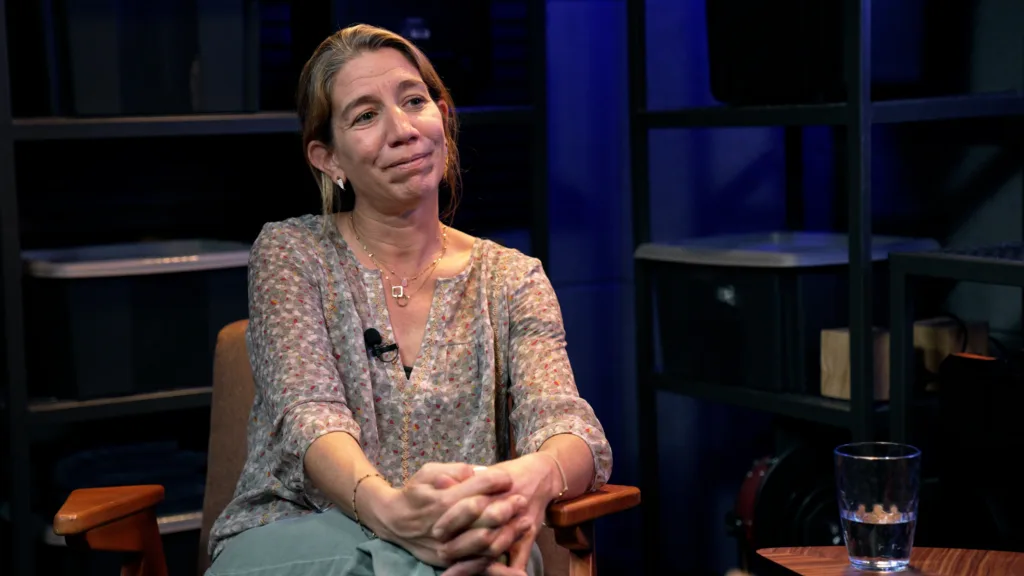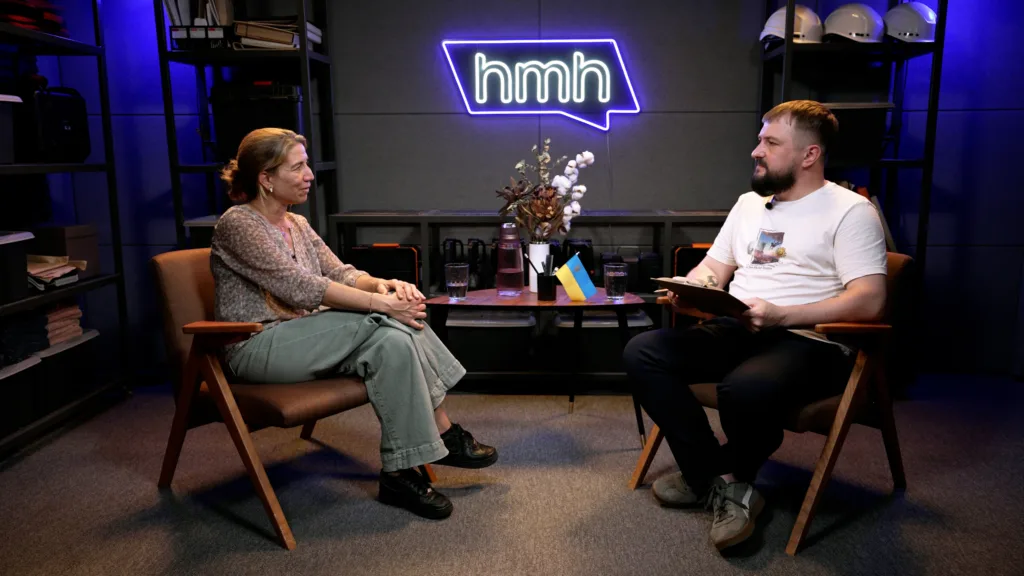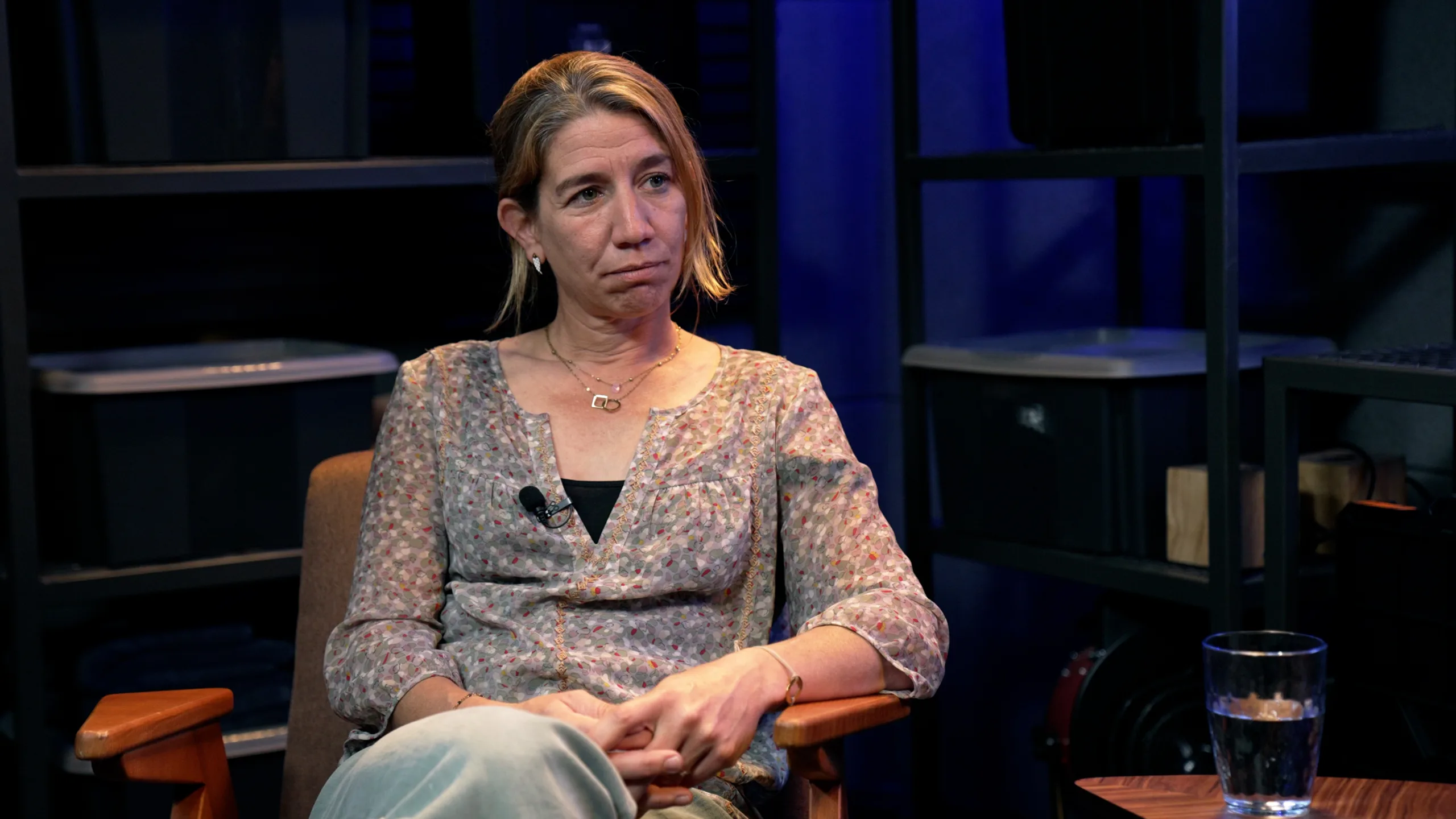Magali Mourlon is a representative of the Red Cross Office to the European Union, which coordinates cooperation between national Red Cross societies in the EU and the EU institutions. During her visit to Kyiv, she spoke about the challenges faced by humanitarian organisations, approaches to localising aid, and the place of Ukraine on the EU’s agenda in the context of a full-scale war.
– Could you introduce us to the Red Cross Office to the EU and what is your role in it?
– Thank you for the invitation. My name is Magali Murlo. I work in Brussels at the Red Cross Office to the EU. This is a specific office that brings together national Red Cross and Red Crescent societies from 27 EU member states – from France, Belgium and Spain to Norway and Iceland – as well as the International Federation of the Red Cross and Red Crescent. We have a memorandum of understanding with the Ukrainian Red Cross Society. Our role is to promote and defend the position of the Red Cross Movement in the EU institutions – the European Commission, the Council and the European Parliament – through humanitarian diplomacy, among other things.
Read also: What is the future of Ukrainians abroad? The experience of a community in Sweden
EU response to the full-scale invasion
– From your perspective, how is the EU responding to the full-scale invasion today?
– At the office level, we have seen a strong mobilisation of Member States and institutions, but it was difficult to understand the scale of the crisis from the very beginning. Even three years later, we are still catching up on defence, humanitarian assistance and community resilience. We are lagging behind in many respects, but I hope that we are getting closer to the level of support that Ukraine needed from day one.

Ukraine’s priority against the backdrop of new conflicts
– In the face of escalation in the Middle East and new crises, will Ukraine remain a priority for the EU?
– I hope so. After my visit to Kyiv, I see that this issue is very high on the agenda. Denmark, which currently holds the EU presidency, has identified Ukraine as one of its top priorities for the next six months. However, this is not enough time, so it is necessary to coordinate efforts at all levels – from humanitarian aid to recovery and integration.
Read also: “Security is a common cause”. Interview with Tetiana Nehaichuk about hromadas
Consequences of the US aid cut
– What are the implications for Ukraine of the US decision to cut aid, and how can we keep donors’ attention?
– This decision is really dramatic for the humanitarian system as a whole. It encourages us to work more efficiently, localise funding more and support local organisations. The Ukrainian Red Cross has already proven its ability to manage large amounts of funds independently. At the same time, we should remind ourselves that the humanitarian crisis is a consequence of political failure, and we need to increase pressure for a political solution to the conflict.
Localisation of aid and effectiveness
– How can humanitarian actors in Ukraine be more effective with limited resources?
– They are already very effective by working at the community level. In the event of shelling or emergencies, your neighbours are the closest rescuers. That’s why we invest in first aid training and mental health support so that every community is ready to respond immediately.
Read also: ‘We are here to listen to you and work as equal partners’ — HLF teamlead Gritt Richter
Red Cross funding and structure
– How is the Red Cross network financed and what are the sources of funds?
– Each National Society is an “Assisting State” under the Geneva Convention and receives government funding. In addition, we attract private donations from citizens, corporate contributions and support from international donors such as the EU, Canada and Australia. Due to the diversity of sources, the impact of the cuts on USAID is less painful than for other organisations.

Priorities in the dialogue with the EU
– What are your key priorities in the dialogue with the EU institutions regarding Ukraine?
– First and foremost, we need to keep Ukraine high on the agenda, both politically and from a humanitarian and recovery perspective. We need to strengthen the political dialogue for peace and an end to the conflict, continue to fund aid inside Ukraine and for displaced people, and actively support the reconstruction and rehabilitation of infrastructure.
Conclusions of the conference and message to Ukrainians and Europeans
– What lessons have you learnt from the conference in Kyiv and what would you like to say to Ukrainians and Europeans?
– The conference confirmed that neither Ukraine nor the EU was ready for such a war. We need to admit mistakes, invest in preparing society for crises and learn to be ready everywhere and always. To Ukrainians, I thank you for your resilience and congratulate you on becoming part of Europe. I urge Europeans not to waste this moment – to support Ukraine, seek a political solution and learn from this experience.
Read also: ‘If it weren’t for the war, I would never have known how painful it is to lose your home,’ Maria Sulyalina, head of Almenda NGO



